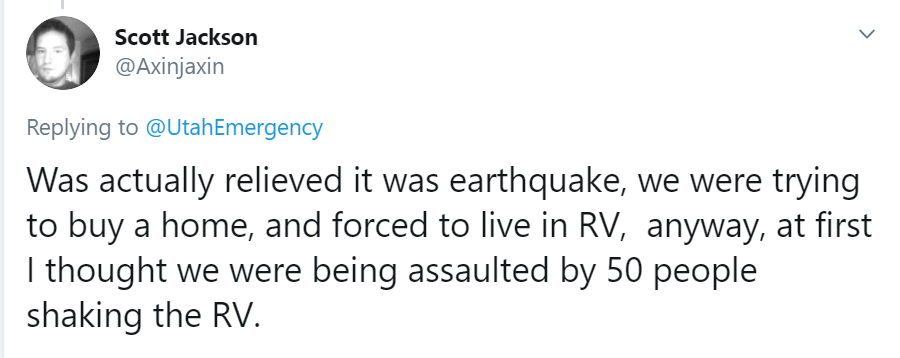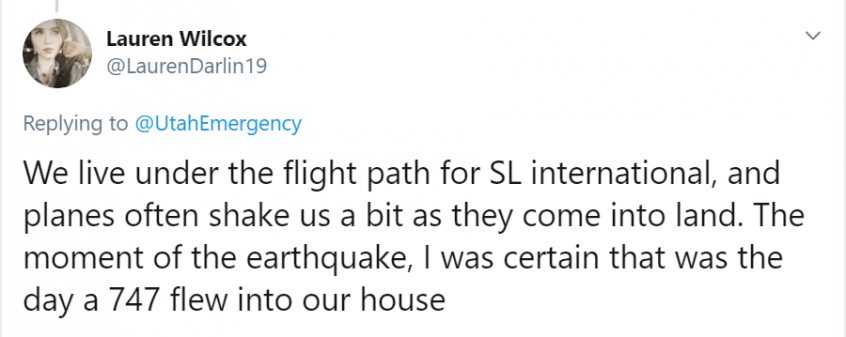What did the earthquake feel like to you?
This post hit the web at 7:09 a.m. today. That’s exactly six months to the minute since many Utahns felt their first earthquake. Can you believe it?
The thing about your first earthquake is that your brain often doesn’t think it’s an earthquake right away. Why does it do that? We’ll get to that answer later on.
Last month, we asked the following question on Twitter, Facebook and Instagram and got some delightful results:
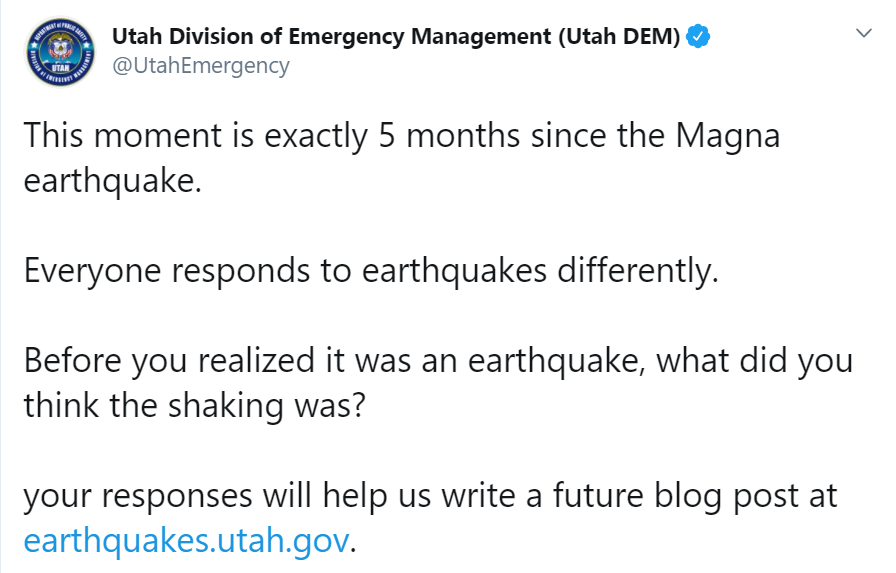
First, a look at the numbers (336 social media comments)
| What people thought the earthquake was | Number |
|---|---|
| Truck/Heavy Equipment/Airplane | 103 |
| Knew what is was | 65 |
| Husband/Family/Neighbor | 45 |
| Wind/Other Natural Disaster | 45 |
| Explosion | 12 |
| Pet | 12 |
| No Idea What Was Happening | 7 |
| Dreaming | 6 |
| Supernatural (Ghosts, Demons) | 6 |
| Falling Tree | 4 |
| Health Problem | 4 |
| Other | 27 |
Trains, planes and automobiles
This category encompasses trucks, semis, heavy equipment, road construction, and low-flying airplanes. It was the most common thing we heard.
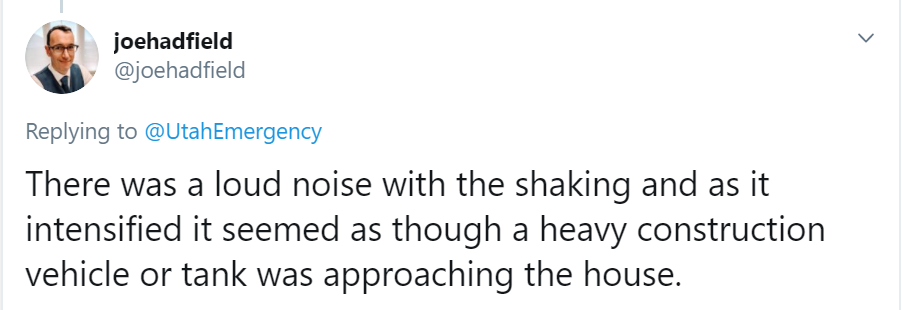

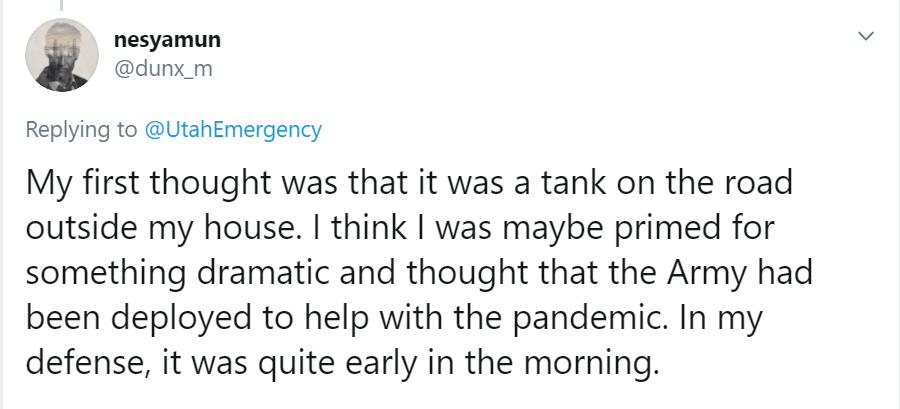
Blame game
Then, there were those whose brains went to a human cause for the shaking, such as drunk neighbors, kids running amok, or a spouse tangled in the sheets.
One woman said she thought her upstairs neighbors were stomping around and dropping heavy objects, “which was not unlike them to do at weird hours…as they are the loudest people to ever exist. I even said to my bf, ‘What could Stompy McGee possibly be doing right now?'”
But nobody received more credit for the shaking than husbands.
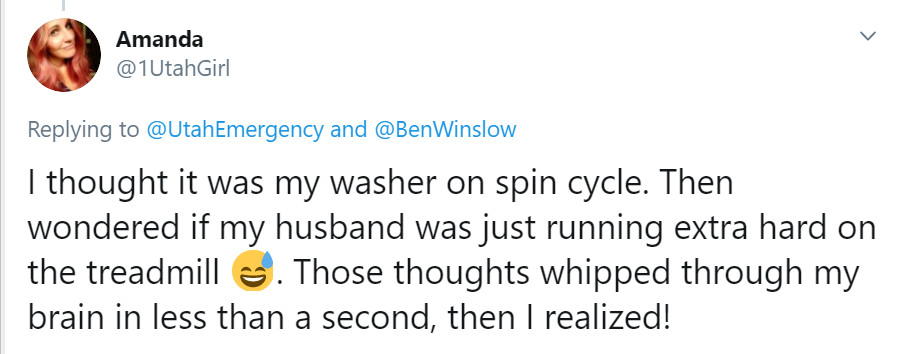
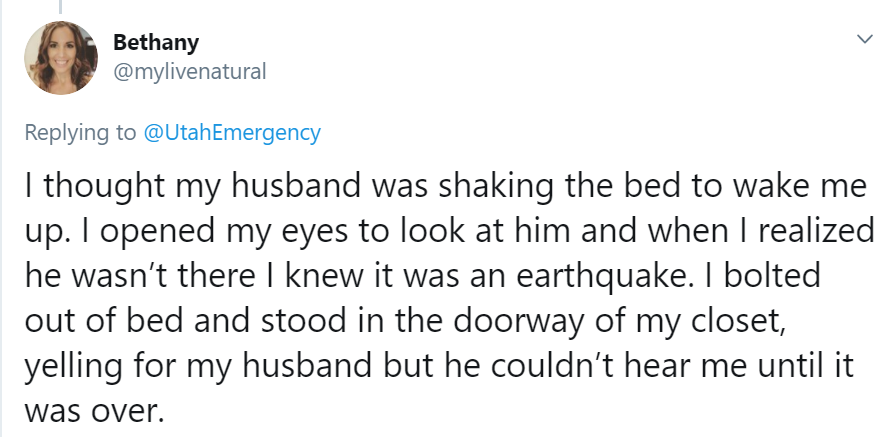
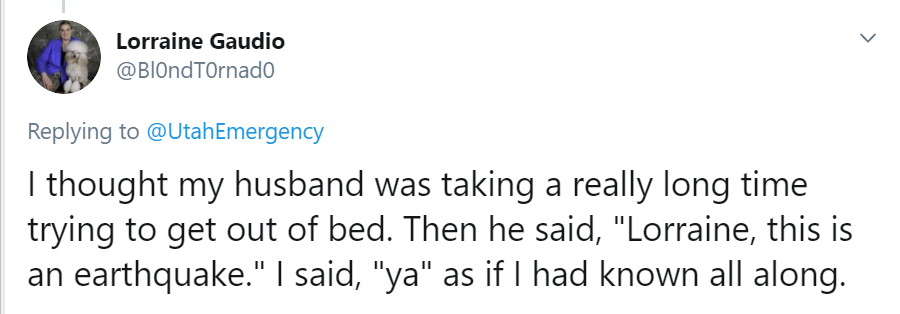
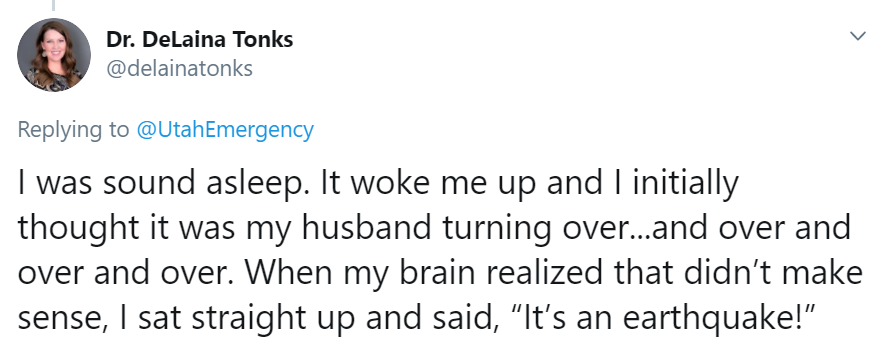
Oh deer: animal antics
We love our furry friends, but in the recesses of our brains, we think they have the potential to cause a ruckus.
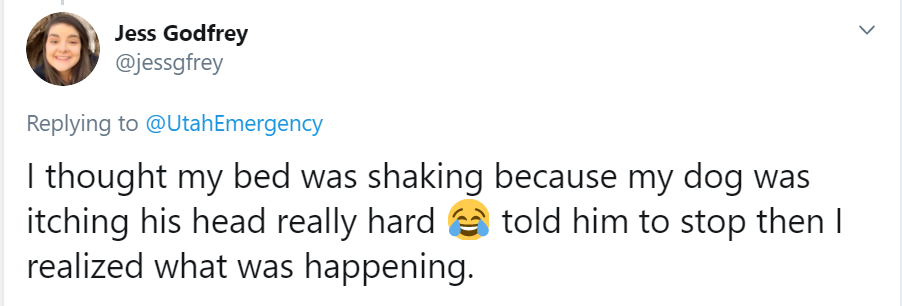
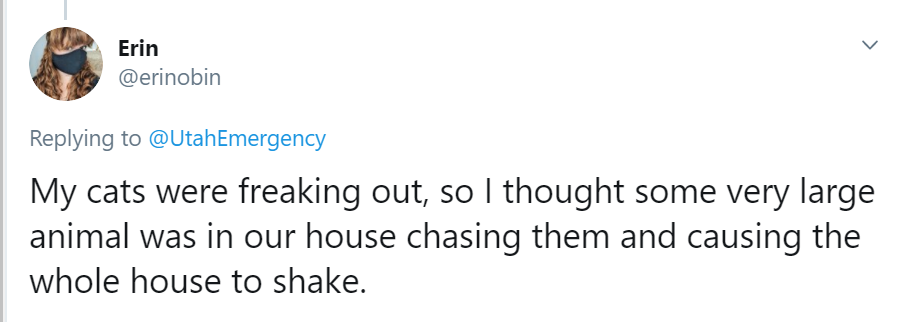

Why do our brains do this?
For most people who have never felt an earthquake, it’s a surprise. When your brain is surprised, it goes immediately to work, often redirecting critical resources from digestion and other functions to your muscles and blood vessels.
At the same time, the brain’s reticular activating system, which controls fight-or-flight responses and helps you respond to the world around you, searches for some profitable information for you.
In this case, it’s searching the recesses of your memory for some data point, some experience, some sound, or some idea that you can identify with the emergency situation you are in.
When you look at it that way, it makes sense that your brain would think an earthquake was a large truck, or a falling tree, or a washing machine, because you already have experiences with those things.
Some people experienced real fear from the earthquake because of the unknown, but if you noticed from our chart, there were quite a few who knew exactly what it was.
I knew it
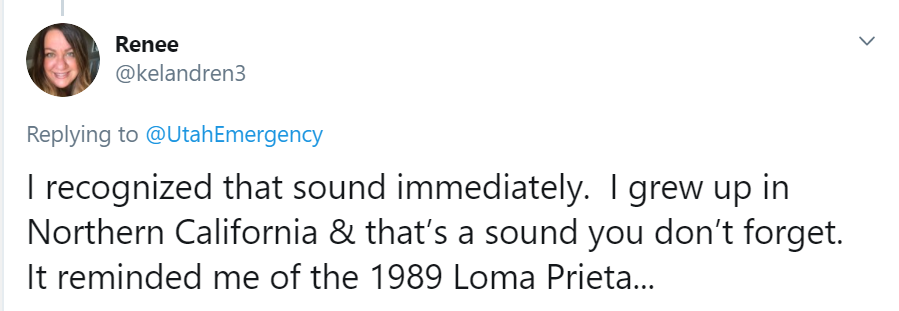
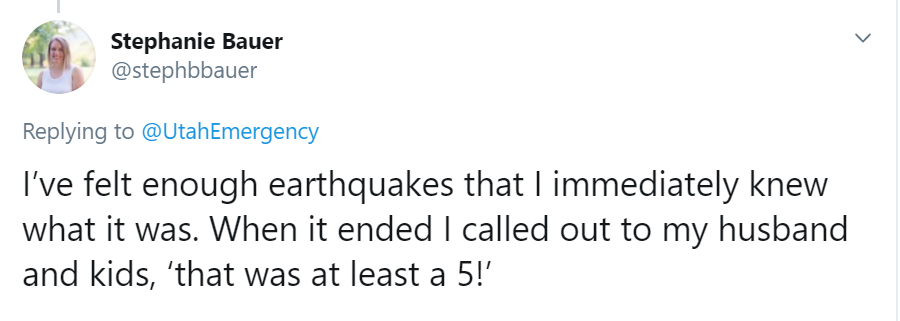
It’s possible to train your brain to be ready for the next earthquake. Now that most Utahns have experienced a good-sized earthquake, they will most likely recognize a quake more quickly in the future. The sooner you realize what’s happening, the sooner you’ll act to protect yourself, either by staying in bed or by dropping to the floor, taking cover, and holding on.
Now, are you ready to chuckle again? Here are a few more things your brains thought as the earth started shaking. It was anything from poltergeists and ghosts, to burglaries and attacks, to seizures and dizzy spells.
Losing grip on reality

